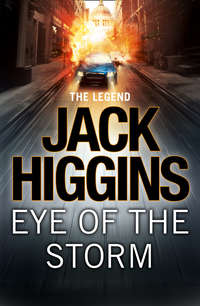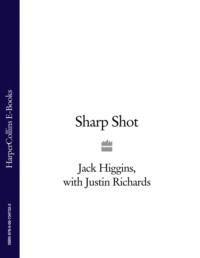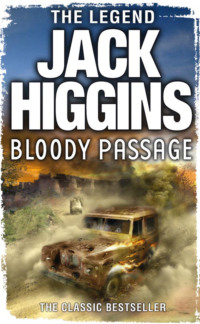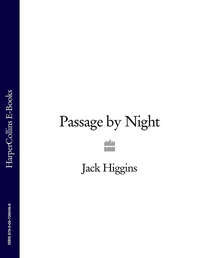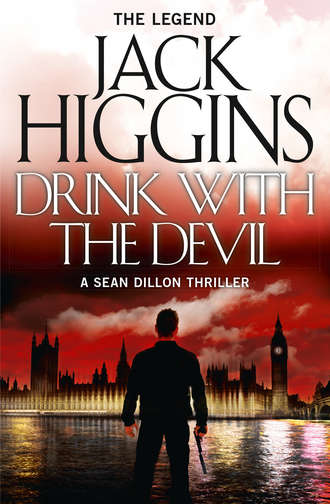
Полная версия
Drink with the Devil

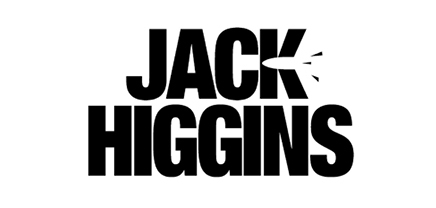
Drink with the Devil

Copyright
This novel is entirely a work of fiction. The names, characters and incidents portrayed in it are the work of the author’s imagination. Any resemblance to actual persons, living or dead, events or localities is entirely coincidental.
Harper
An imprint of HarperCollinsPublishers Ltd.
1 London Bridge Street
London SE1 9GF
www.harpercollins.co.uk
First published in Great Britain by Michael Joseph 1996
Copyright © Harry Patterson 1996
Cover layout design © HarperCollinsPublishers Ltd 2015
Photography and illustration © Nik Keevil
Harry Patterson asserts the moral right to be identified as the author of this work.
A catalogue copy of this book is available from the British Library
All rights reserved under International and Pan-American Copyright Conventions. By payment of the required fees, you have been granted the non-exclusive, non-transferable right to access and read the text of this e-book on screen. No part of this text may be reproduced, transmitted, down-loaded, decompiled, reverse engineered, or stored in or introduced into any information storage and retrieval system, in any form or by any means, whether electronic or mechanical, now known or hereinafter invented, without the express written permission of HarperCollins ebook
HarperCollinsPublishers has made every reasonable effort to ensure that any picture content and written content in this ebook has been included or removed in accordance with the contractual and technological constraints in operation at the time of publication
Source ISBN: 9780008124830
Ebook Edition © JANUARY 2011 ISBN: 9780007352296
Version: 2016-08-25
Dedication
To Denise Best of girls
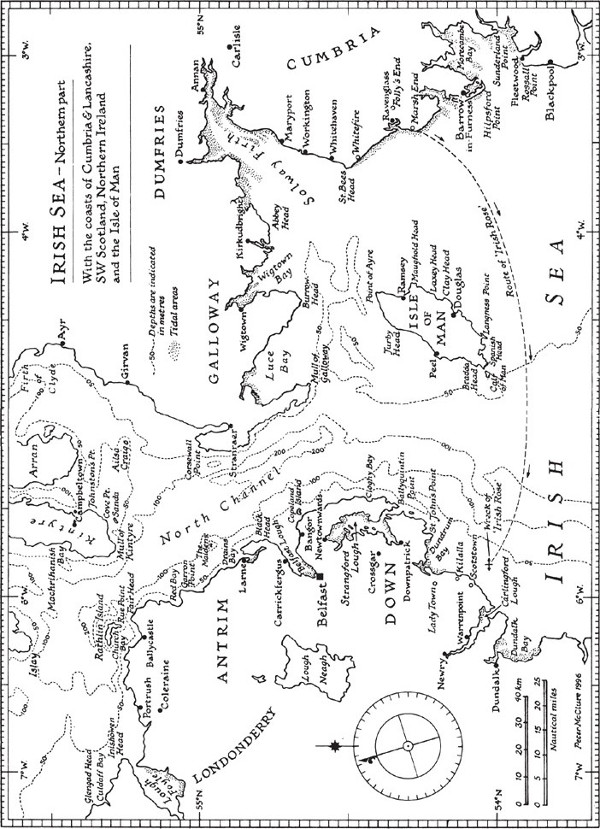
Contents
Cover
Title Page
Copyright
Dedication
Irish Sea Map
BELFAST 1985
Chapter 1
LONDON THE LAKE DISTRICT 1985
Chapter 2
Chapter 3
Chapter 4
Chapter 5
Chapter 6
NEW YORK STATE IRELAND LONDON WASHINGTON IRELAND 1995
Chapter 7
Chapter 8
Chapter 9
Chapter 10
Chapter 11
Chapter 12
Chapter 13
Chapter 14
THE LAKE DISTRICT 1995
Chapter 15
About the Author
Also by Jack Higgins
Further Reading
About the Publisher
1
Rain swept in from Belfast Lough and, as he turned the corner, there was the rattle of small-arms fire somewhere in the darkness of the city centre followed by the crump of an explosion. He didn’t hesitate, but started across the square, a small man, no more than five feet five, in jeans, reefer coat and peaked cap, a seaman’s duffel bag hanging from one shoulder.
A sign said Albert Hotel, but it was more a lodging house than anything else, of a type used by sailors and constructed originally by the simple expedient of knocking three Victorian terrace houses together. The front door stood open and a small, balding man peered out, a newspaper in one hand.
There was another explosion in the distance. ‘Jesus!’ he said. ‘The boys are active tonight.’
The small man said from the bottom of the steps, ‘I phoned earlier about a room. Keogh is the name.’ His voice was more English than anything else, only a hint of the distinctive Belfast accent.
‘Ah, yes – Mr Keogh. Off a boat are ye?’
‘Something like that.’
‘Well, come away in out of the rain and I’ll fix you up.’
At that moment a Land Rover turned the corner followed by another. They were stripped down, three paratroopers crouched behind the driver, hard young men in red berets and flak jackets, each one carrying a sub-machine gun. They vanished into the darkness and rain on the other side of the square.
‘Jesus!’ the old man said again then went inside and Keogh followed him.
It was a poor sort of a place, a square hall with a reception desk and a narrow staircase. The white paint had yellowed over the years and the wallpaper was badly faded, damp showing through here and there.
The old man pushed a register across the desk for Keogh to sign. ‘RUC regulations. Home address. Next port of call. The lot.’
‘Fine by me.’ Keogh quickly filled it in and pushed the register back across the desk.
‘Martin Keogh, Wapping, London. I haven’t been to London in years.’
‘A fine city.’ Keogh took out a packet of cigarettes and lit one.
The old man took a room key down from a board. ‘At least they don’t have Paras hurtling around the streets armed to the teeth. Crazy that, sitting out in the open, even in the rain. What a target. Suicide, if you ask me.’
‘Not really,’ Keogh told him. ‘It’s an old Para trick developed years ago in Aden. They travel in twos to look after each other and, with no armour in the way, they can respond instantly to any attack.’
‘And how would you be knowing a thing like that?’
Keogh shrugged, ‘Common knowledge, Da. Now, can I have my key?’
It was then that the old man noticed the eyes, which were of no particular colour and yet were the coldest he had ever seen, and for some unaccountable reason he knew fear. And at that moment Keogh smiled and his personality changed totally. He reached across and took the key.
‘Someone told me there was a decent café near here. The Regent?’
‘That’s right. Straight across the square to Lurgen Street. It’s by the old docks.’
‘I’ll find it,’ and Keogh turned and went upstairs.
He found the room easily enough, opened the door, the lock of which had obviously been forced on numerous occasions, and went in. The room was very small and smelled of damp. There was a single bed, a hanging cupboard and a chair. There was a washbasin in the corner, but no toilet. There wasn’t even a telephone; still, with any luck, it would only be for one night.
He put his duffel bag on the bed, opened it. There was a toilet bag, spare shirts, some books. He pulled them to one side and prised up the thick cardboard base of the bag, disclosing a Walther PPK pistol, several clips of ammunition and the new small Carswell silencer. He checked the weapon, loaded it and screwed the silencer into place then he slipped it inside his jeans against the small of his back.
‘Regent, son,’ he said softly and went out whistling a small sad tune.
There was a public telephone by the reception desk, of the old-fashioned kind in a booth. Keogh nodded to the man, went inside and closed the door. He found some pound coins and dialled a number.
Jack Barry was a tall, pleasant-looking man whose horn-rimmed spectacles gave him a bookish look. He had the look also of the schoolmaster, which was exactly what he had once been. But not now – now he was Chief of Staff of the Provisional IRA and he was seated by the fire at his Dublin home reading the paper, his portable phone at his side, when it rang.
He picked it up and his wife, Jean, called, ‘Now don’t be long. Your supper’s ready.’
‘Barry here.’
Keogh said in Irish, ‘It’s me. I’ve booked in at the Albert Hotel under the name of Martin Keogh. Next step is to meet the girl.’
‘Will that be difficult?’
‘No, I’ve organized it. Trust me. I’m off to this Regent Café now. Her uncle owns it.’
‘Good man. Keep me posted. Use the mobile number only.’
He switched off his phone and his wife called again, ‘Come away in. It’s getting cold.’
He got to his feet obediently and went into the kitchen.
Keogh found the Regent Café with no trouble. One window was boarded up, obviously from the bomb blast, but the other was intact, offering a clear view of the interior. There were hardly any customers, just three old men at one table and a ravaged-looking middle-aged woman at another who looked like a prostitute.
The girl sitting behind the counter was just sixteen; he knew that because he knew all about her. Her name was Kathleen Ryan and she ran the café on behalf of her uncle, Michael Ryan, a Protestant, and a gunman from his earliest youth. She was a small girl with black hair and angry eyes above pronounced cheekbones. Not pretty by any conventional standard. She wore a dark sweater, denim miniskirt and boots and sat on a stool engrossed in a book when Keogh went in.
He leaned on the counter. ‘Is it good?’
She looked him over calmly and that look told him of someone infinitely older than her years.
‘Very good. The Midnight Court.’
‘But that’s in Irish, surely?’ Keogh reached for the book and saw that he was right.
‘And why shouldn’t it be? You think a Protestant shouldn’t read Irish? Why not? It’s our country too, mister, and if you’re Sinn Fein or any of that old rubbish I’d prefer you went elsewhere. Catholics aren’t welcome. An IRA street bomb killed my father, my mother and my wee sister.’
‘Girl, dear.’ Keogh held up his hands defensively. ‘I’m a Belfast boy home from the sea who’s just come in for a cup of tea.’
‘You don’t sound Belfast to me. English, I’d say.’
‘And that’s because my father took me to live there when I was a boy.’
She frowned for a moment then shrugged. ‘All right.’ She raised her voice. ‘Tea for one, Mary.’ She said to Keogh, ‘No more cooking. We’re closing soon.’
‘The tea will do just fine.’
A moment later, a grey-haired woman in an apron brought tea in a mug and placed it on the counter. ‘Milk and sugar over there. Help yourself.’
Keogh did as he was told and pushed a pound coin across. The woman gave him some change. The girl ignored him, reached for her book and stood up. ‘I’ll be away now, Mary. Give it another hour then you can take an early night.’ And she went through to the back.
Keogh took his tea to a table by the door, sat down and lit a cigarette. Five minutes later Kathleen Ryan emerged wearing a beret and an old trench-coat. She went out without looking at him. Keogh sipped some more tea, then got up and left.
It was raining harder now as she turned on to the waterfront and she increased her pace, head down. The three youths standing in the doorway of a disused warehouse saw her coming as she passed under the light of a street lamp. They were of a type to be found in any city in the world. Vicious young animals in bomber jackets and jeans.
‘That’s her, Pat,’ the one wearing a baseball cap said. ‘That’s her. The Ryan bitch from the café.’
‘I can tell for myself, you fool,’ the one called Pat said. ‘Now hold still and grab her on the way past.’
Kathleen Ryan was totally unaware of their existence as they stayed back in the shadows. It was only the quick rush of feet that alerted her and by then it was too late, one arm round her neck half choking her.
Pat walked round in front and tilted her chin. ‘Well, now, what have we got here? A little Prod bitch. Ryan, isn’t it?’
She kicked back, catching the youth in the baseball cap on the shin. ‘Leave me be, you Taig bastard.’
‘Taig bastard, is it,’ Pat said. ‘And us decent Catholic boys!’ He slapped her face. ‘Up the alley with her. Time she learned her manners.’
She didn’t scream for it was not in her nature, but cried out in rage and bit the hand that fastened on her mouth.
‘Bitch!’ Baseball Cap called out and punched her in the back and then they ran her along the alley through the rain. There was a stack of packing cases clear under an old-fashioned gas street lamp. As she struggled, two of them pulled her across a packing case and Pat moved up behind and racked her skirt up.
‘Time you learned,’ he said.
‘No, time you learned!’ a voice called. Pat turned and Martin Keogh walked up the alley, hands in the pockets of his reefer. ‘Put her down. I mean, she doesn’t know where you’ve been, does she?’
‘Stuff you, wee man,’ the one in the baseball cap said, released his hold on the girl and swung a punch at Keogh who caught the wrist, twisted and ran him face-first into the wall.
‘You bastard!’ the third youth cried and rushed him.
Keogh’s left hand came out of his pocket, holding the Walther, and he slashed the youth across the face, splitting the cheek from the left eye to the corner of the mouth. He raised the gun and fired, the distinctive muted cough of the silenced weapon flat in the rain.
Baseball Cap was on his knees, the other clutching his cheek, blood pouring through his fingers. Pat stood there, rage on his face.
‘You bloody swine!’
‘It’s been said before.’ Keogh touched him between the eyes with the silenced end of the Walther. ‘Not another word or I’ll kill you.’
The youth froze. Kathleen Ryan was pulling her skirt down. Keogh said, ‘Back to that café of yours, girl. I’ll see you soon.’
She hesitated, staring at him, then turned and ran away along the alley.
There was only the rain now and the groans of the injured. Pat said wildly, ‘We did what you told us to do. Why this?’
‘Oh, no,’ Keogh said. ‘I told you to frighten the girl a little and then I’d come and save her.’ He found a cigarette one-handed and lit it. ‘And what were we into? Gang rape.’
‘She’s a dirty little Prod. Who cares?’
‘I do,’ Keogh told him. ‘And I’m a Catholic. You give us a bad name.’
Pat rushed him. Keogh swayed to one side, tripping him with his right foot and dropped one knee down hard in his back. Pat lay there sobbing in the rain.
Keogh said, ‘You need a lesson, son.’
He jammed the muzzle of the Walther against the youth’s thigh and pulled the trigger. There was a muted report and Pat cried out.
Keogh stood up. ‘Only a flesh wound. It could have been your kneecap.’
Pat was sobbing now. ‘Damn you!’
‘Taken care of a long time ago.’ Keogh took an envelope from his pocket and dropped it down. ‘Five hundred quid, that was the price. Now get yourself to the Royal Victoria Casualty Department. Best in the world for gunshot wounds, but then they get a lot of experience.’
He walked away, whistling the same eerie little tune, and left them there in the rain.
When he reached the café there were no longer any customers, but he could see Kathleen Ryan and the woman Mary standing behind the counter. The girl was on the telephone. Keogh tried the door, but it was locked. Kathleen Ryan turned as the door rattled and nodded to Mary who came from behind the counter and unlocked it.
As Keogh entered Mary said, ‘She told me what you did for her. God bless you.’
Keogh sat on the edge of a table and lit a cigarette. The girl was still talking. ‘No, I’ll be fine now. I’ll be at the Drum in twenty minutes. Don’t fret.’ She put the phone down and turned, her face calm. ‘My Uncle Michael. He worries about me.’
‘And why not?’ Keogh said. ‘Desperate times.’
‘You don’t take prisoners, do you?’
‘I could never see the point.’
‘And you’re carrying. A Walther, from what I saw.’
‘Very knowledgeable for one so young.’
‘Oh, I know guns, mister, I was raised on them. What did you do after I left?’
‘I sent them on their way.’
‘Home, was it, with a pat on the head?’
‘No, the nearest casualty department. They needed a lesson. They got one. The one who seemed to be in charge will be on sticks for a while, if that’s a comfort to you.’
She frowned, her eyes dark. ‘What’s your game?’
‘No game. I didn’t like what was going on, that’s all.’ He stood up and stubbed out his cigarette. ‘Still, you seem fine now so I’ll be on my way.’
He got the door open. She said quickly, ‘No, hang on.’ He turned and she added, ‘You can walk me to my uncle’s pub. That’s the Orange Drum on Connor’s Wharf. It’s about a quarter of a mile. My name is Kathleen Ryan. What’s yours?’
‘Martin Keogh.’
‘Wait for me outside.’
He did as he was told and saw her go to the phone again. Probably speaking to her uncle, he thought. A few moments later she joined him, this time carrying a large umbrella.
As she put it up against the driving rain he said, ‘And wouldn’t a taxi be safer?’
‘I like the city at night,’ she told him. ‘I like the rain. I’ve got a right to go my own way and to hell with those Fenian bastards.’
‘A point of view,’ he replied as they started to walk.
‘Here, get under this,’ she said, pulling him under the umbrella and taking his arm. ‘A sailor, you said?’
‘Just for the past couple of years.’
‘A sailor from Belfast raised in London who carries a Walther.’ There was a question in her voice.
‘A dangerous place, this old town, as you saw tonight.’
‘Dangerous for you, you mean, and that’s why you’re carrying.’ She frowned. ‘You’re not a Fenian or you wouldn’t have done what you did to that lot.’
‘I’m not anybody’s, girl dear.’ He paused to light a cigarette.
She said, ‘Give me one.’
‘I will not and you with your green years ahead of you. God, but you’re one for the questions, Kate.’
She turned to glance at him. ‘Why do you call me that? No one else does.’
‘Oh, it seems to suit.’
They were walking along the waterfront now, container ships anchored at the Quay and, further out, the red and green lights of a freighter moving out to sea.
Kathleen Ryan said, ‘So, the gun? Why are you carrying?’
‘Jesus, it’s the persistent one you are. A long time ago I was a soldier. Did three tours of duty in this very town and there’s always the chance of someone with a long memory and a grudge to work off.’
‘What regiment?’
‘1 Para.’
‘Don’t tell me you were at Bloody Sunday in Londonderry?’
‘That’s right. Like I said, a long time ago.’
Her hand tightened on his arm. ‘God, but you lads gave those Fenians a roasting that day. How many did you kill? Thirteen wasn’t it?’
The lights of the pub were plain across a cobbled quay now. Keogh said, ‘How old are you?’
‘Sixteen.’
‘So young and so full of hate.’
‘I told you. The IRA killed my father, my mother and my wee sister. That only leaves Uncle Michael.’
The sign said The Orange Drum and one was painted on the brick wall beside it with the legend Our Country Too. The girl put the umbrella down, opened the door and led the way in.
The interior was a typical Belfast pub with several booths, a few tables and chairs and a long mahogany bar. Bottles of every kind of drink were ranged on shelves against a mirrored wall. There were only half-a-dozen customers, all old men, four of them playing cards by an open fire, two others talking softly to each other. A hard-looking young man with one arm sat behind the bar reading the Belfast Telegraph.
He glanced up and put the paper down. ‘Are you OK, Kathleen? Michael told me what happened.’
‘I’m fine, Ivor. Thanks to Mr Keogh here. Is Uncle Michael in the back?’
At that moment a door opened and a man walked through. Keogh knew him at once from the photos Barry had supplied at his briefing in Dublin. Michael Ryan, aged fifty-five, a Loyalist of the first order who had served in the UVF and Red Hand of Ulster, the most extreme Protestant group of all, a man who had killed for his beliefs many times. He was of medium height, hair greying slightly at the temples, eyes very blue, and there was an energy to him.
‘This is Martin Keogh,’ the girl said.
Ryan came round the bar and held out his hand. ‘You did me a good turn tonight. I shan’t forget.’
‘Lucky I was there.’
‘That’s as may be. I owe you a drink anyway.’
‘Bushmills whiskey would be fine,’ Keogh told him.
‘Over here.’ Ryan indicated a booth in the corner.
The girl took off her raincoat and beret and eased behind the table. Her uncle sat beside her and Keogh was opposite. Ivor brought a bottle of Bushmills and two glasses.
‘Can I get you anything, Kathleen?’
‘No, I’m OK, Ivor.’
He plainly worshipped her, but nodded and walked away. Ryan said, ‘I’ve checked with a contact at the Royal Victoria. They just received three very damaged young men. One with a bullet in the thigh.’
‘Is that a fact?’ Keogh said.
Kathleen Ryan stared at him. ‘You didn’t tell me.’
‘No need.’
‘Let’s see what you’re carrying,’ Ryan asked. ‘No need to worry. All friends here.’
Keogh shrugged, took the Walther from his pocket and passed it across. Ryan examined it expertly. ‘Carswell silencer, the new job. Very nice.’ He took a Browning from his pocket and passed it over. ‘Still my personal favourite.’
‘Preferred weapon of the SAS.’ Keogh lifted the Browning in one hand. ‘And the Parachute Regiment.’
‘He served with 1 Para,’ the girl said. ‘Bloody Sunday.’
‘Is that a fact?’ Michael Ryan said.
‘A long time ago. Lately I’ve been at sea.’
‘Belfast, but raised in London, Kathleen tells me?’
‘My mother died in childbirth. My father went to London in search of work. He’s dead now.’
Ryan had ejected the magazine from the butt of the Walther. ‘And a good Prod. You must be because of what you did for Kathleen.’
‘To be honest with you, religion doesn’t mean a thing to me,’ Keogh told him. ‘But let’s say I know which side I’m on.’
At that moment, the door was flung open and a man in a cloth cap and raincoat rushed in, a revolver in one hand.
‘Michael Ryan, you bastard, I’ve got you now,’ he cried and raised the revolver.
Ryan was caught, the magazine from the Walther on the table beside it. Keogh said, ‘What do I do, shoot him? All right. Bang, you’re dead.’ He picked up the Browning and fired once. The man dropped the hand holding the revolver to one side. Keogh said, ‘Blanks, Mr Ryan, I could tell by the weight. What kind of a game are we playing here?’
Ryan was laughing now. ‘Go on, Joseph, and get yourself a drink at the bar.’
The supposed gunman turned away. The old men by the fire continued their card game as if nothing had happened.
Michael Ryan stood up. ‘Just a test, my old son, in a manner of speaking. Let’s adjourn to the parlour and talk some more.’
There was a fire in the grate of the small parlour, curtains drawn as rain drummed against the window. It was warm and comfortable and Ryan and Keogh sat opposite each other. The girl came in from the kitchen with a teapot, milk and cups on a tray.
Ryan said, ‘If you’re a seaman you’ll have your papers.’





